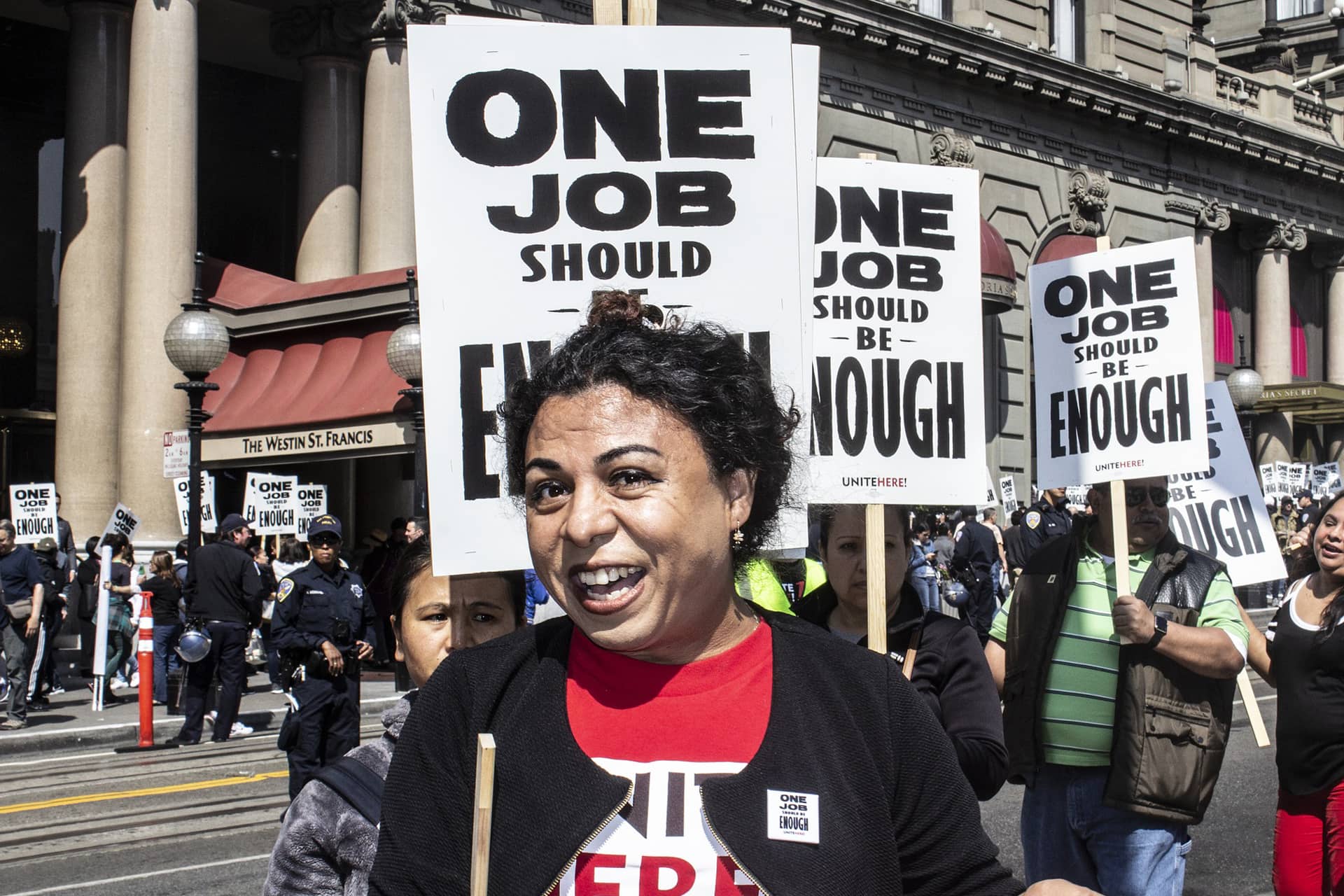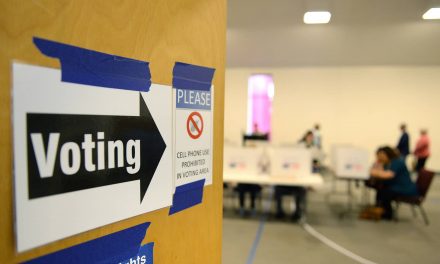
“‘Good Lord almighty, what is that? What the hell is that?’ Eve’s screech was loud enough to reach the foremen’s office. She jumped three feet back from the sorting table as the two foremen came hurtling in. ‘That’s human flesh up in there!’ Eve pointed to the jumble of hospital linen. Sure enough, a gelatinous chunk of something purple had rolled out of a sheet onto the table.”
Those are the opening lines of the new novel, Standing Up: Tales of Struggle, by long time Milwaukee social activists Ellen Bravo and Larry Miller (Hardball Press, 284 pages).
If readers are expecting a long, dry philosophic treatise on civil and workers’ rights disguised as fiction, they will be pleasantly surprised that storytelling here is the main attraction.
Bravo and Miller are a wife and husband team with a long history of activism in the Milwaukee community. Bravo is most known for her involvement in 9to5, an organization fighting for women’s rights in the workplace and society. Miller began his activism as an industrial worker, later as a Milwaukee teacher and elected school board director.
The concept of the book came from essays Miller wrote about his experiences beginning as a laborer in the South. He showed the essays to friends and thought he could turn them into short stories. Ellen had written fiction on her own and had numerous stories she could add to the mix. When they brought the outline to a publisher, their first thought was a collection of short stories. The publisher suggested that instead they write a novel.
The first vignette tells the story of hospital laundry workers in a 1970 Atlanta fight for basic sanitation: masks, protective clothing and gloves among other improvements in working conditions. Here the main character at the laundry is Nick Turner, a kid from central Wisconsin, whose life throughout the book parallels Miller’s. Miller admits he worked in that hospital laundry in Atlanta.
Nick ultimately meets another social activist, Sophie Reznick, much like Ellen Bravo. They fall in love, get married, move to Milwaukee and start a family.
Sophie works with Working Women United fighting sexism, domestic violence, equal rights for workers regardless of gender or race. While Miller draws upon the personal essays for Nick, Bravo creates characters and storylines that are less historical but based upon her own experience and the experiences of others.
In one Bravo story, Dori is a young Black woman working her way up at Peoples’ Trust Bank. But she is torn over whether she should speak up about instances of sexism and racism she witnesses. . She convinces herself that she can only speak once she reaches a position of power in the organization.
Her mother, who has been a social activist all her life, intervenes, telling Dori she cannot wait; she already has the power to make institutional change.
Says Bravo, “That was an inspiration from Jane Fonda who called me in 2006.” The movie 9to5 drew upon ideas from Bravo herself. Fonda and Lily Tomlin were considering a follow-up movie some twenty years later with the working title, 24/7. Fonda’s idea was to have her character from the first movie now face her own daughter making compromises in management.
Fonda asked Bravo to help create an outline, but they couldn’t get the movie studio to move ahead. When she decided to write Standing Up, Bravo asked Fonda if she could use the idea in her book. “Absolutely,” said Fonda.
One true story in the book is the signing of the Wisconsin Family Medical Leave Act by Gov. Tommy Thompson. Originally, Thompson wanted a much narrower bill. The child in the book who gets hit by a car and needs additional medical care was actually the son of Bravo and Miller. They changed that character to a young girl in the novel. The actual Milwaukee state senator, John Plewa, is mentioned in the novel and did arrange to have children brought into the Capitol to lobby for the bill and ultimately for the governor’s signature. Thompson relented and signed the broader measure, stating, “It was the kids that made me do it.” He offered Bravo and Miller’s son the pen.
In the novel, Nick goes back to school, becomes a high school social studies teacher and just happens winds up teaching at Custer High School, the very school where Miller taught. The toxic waste Nick’s students find in the neighboring playground was actually discovered when Miller taught at Custer.
Later Nick gets elected to the Milwaukee school board, just like Miller. The last chapter is reflective, both “Sophie” and “Nick” now in their 70s, more or less retired, but still socially active.
Milwaukee area readers might have fun trying to figure out if real businesses are targeted in the book under fictitious names, such as Central States Airlines and Peoples’ Trust Bank. The stand-up that takes place in the novel at Central States Airlines is modeled after a similar incident at TWA in late 1980s. Peoples’ Trust Bank is not modeled after one particular bank. There are just enough local references to keep locals grounded: Marquette University, lakefront, Wisconsin Avenue, Milwaukee Journal.
Bravo says it is hard to get into book stores for presentations. So many have closed, and of those still operating, many have not hosted book signings. In the next few weeks, she and Miller will travel to Oakland, DC and New York. Some virtual presentations are planned. So far the book has received excellent reviews from the likes of Jacquelyn Mitchard, Gloria Steinem and a host of social activists.
Miller says they are too busy going to book signings and doing interviews to consider a sequel. In this book, Miller only briefly touches on his character’s activity in the teachers’ union and on the school board. “That could be a whole other book,” says Miller.
As for the critics close to home, Bravo says “My 97-year-old friend complained that there wasn’t enough sex, and our older son thought there was too much.”
Tеrrеncе Fаlk
Originally published on the Wisconsin Examiner as Milwaukee activists pen fictional account of struggle for workers’ rights
Donate: Wisconsin Examiner
Help spread Wisconsin news, relentless reporting, unheard voices, and untold stories. Make a difference with a tax-deductible contribution to the Wisconsin Examiner














